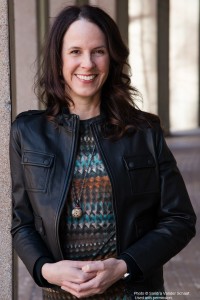The similarities between the Argentine Tango and medicine may not be immediately obvious, however Karen Shklanka, MD’88, MFA’12, points out that they two very complementary areas. Shklanka explains that as a physician, many look to you to take a leadership role in your profession. As a dancer, she must follow the lead of her partner, something she found challenging at first. However, as she matured as a dancer and learned to trust the lead of her partner, she began to understand the similarities between dance and medicine. A physician can sometimes be more successful if they take a follower approach, rather than leading. When communicating effectively they can pick up valuable cues from their patient and work together to create better outcomes.
Having a balance between her life as a physician, counselor and teacher and her interest in the arts has always been important to Shklanka. As a student, she was told she had too many interests and would have to give something up to be able to focus on medicine. Conversely, personal interests outside of medicine have provided her with much needed stress relief and are essential to balance in her life. Tango is one of the few things that enable Shklanka to completely clear her mind; a shift that is rare and very valuable.
Shklanka recalls that she almost didn’t make it into medical school at UBC. She was called in for a second set of interviews because one of the interview panelists in the first set thought she was ‘too sensitive’ to be a doctor. Luckily the panelists on the second round of interviews thought differently. That second group of interviewers saw potential in Shklanka; she later went on to get the top mark in Canada in the 1990 Family Medicine CCFP examination. She feels that her empathy and perceived “sensitivity” has actually made her more effective for her patients, in family medicine but also when she worked in trauma and as a “jack of all trades” in rural medicine.
The medical school interviews impacted Shklanka as she noticed the different communication skills of the doctors on the panel and saw a stark difference between them. She has since gone on to focus on communication through teaching, as a counselor and as an addiction medicine consultant. Communication has been a common focus for her throughout her life, whether she is working with clients in a therapy session or teaching new residents the value in hearing their patients’ stories. The art of communication is something that resonates strongly with Shklanka and a passion of hers that she is happy to share.
One project Shklanka is particularly proud of is her work on the ORCA video review project . She has developed a method with the use of reviewing videos, to help guide family medicine residents’ interactions with patients. From these videos, she has been able to modify her teaching and is now seeing positive changes in the residents. She credits the ORCA project among the highlights of her career thus far. Seeing an improvement in residents’ self-awareness and ability to be patient-centered in their approach has been incredibly rewarding for Shklanka and has only fueled her to continue to advocate for stronger communication skills in all physicians.
Shklanka is part of a group of international physicians who are committed to improving communication skills among residents, physicians and others in the healthcare industry. Shklanka has presented on her work at the International Conference for Communication in Healthcare. Her and her international colleagues are working hard to change traditional views and encourage physicians to look forward to new ways of thinking.
Shklanka’s other passion is writing. She recently completed a Master’s degree in Creative Writing at UBC and has published a book of poems titled ‘Sumac’s Red Arms’. The book takes a reflective look on her time as a rural physician as well as her extensive travel. In it she captures the triumphs and tragedies of life as a doctor in poetic form. She has received many glowing reviews and intends to continue following this passion; A second manuscript of poetry is already in the works, entitled “Witness”.
Looking forward, Shklanka hopes to continue to work on finding ways to inspire physicians to take a fresh look at their own communication skills. She believes a strong focus on communication will make a more compassionate, more thorough, and more effective care strategy and outcome for patients, through collaboration with them and other health care providers.

Comments are closed, but trackbacks and pingbacks are open.